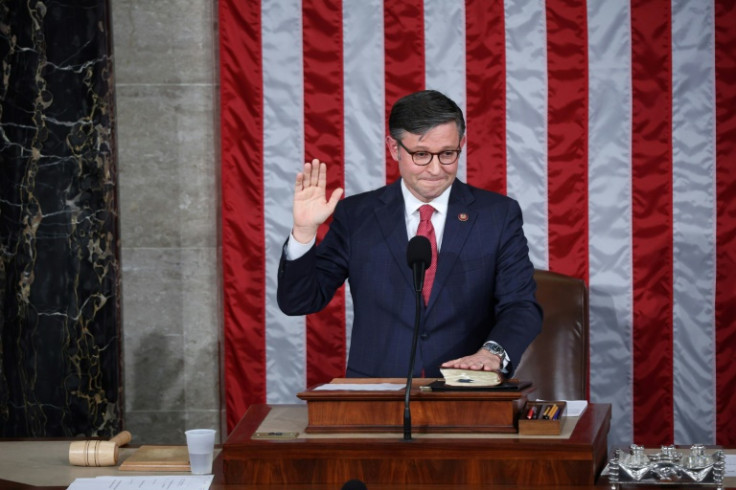
U.S. House of Representatives Speaker Mike Johnson has articulated his intention to make efforts towards advancing wartime aid for Israel during the current week. This endeavor forms part of a broader, complex initiative aimed at garnering House approval for a comprehensive national security package. This package encompasses not only assistance for Israel but also funding allocations for Ukraine and allies in Asia.
"We're going to try again this week, and the details of that package are being put together right now. We're looking at the options, and all these supplemental issues," Johnson explained during an appearance on Fox News' "Sunday Morning Futures" program.
Johnson, who is facing challenges in unifying his fragmented Republican majority and steering clear of a potential ouster, recounted two previous unsuccessful endeavors to pass standalone aid legislation for Israel.
The unprecedented attack launched by Iran against Israel early on Sunday has intensified the pressure on Johnson. However, it has also presented him with an opportunity to underscore the critical importance and urgency of approving the funding. This event underscores the immediate need for robust support for Israel's defense capabilities in the face of escalating threats in the region.
The White House, along with leading Democrats and Republicans in the Senate, urged Johnson to promptly advance a $95 billion bipartisan package that has already been passed by the Senate. This package includes $14.1 billion in aid for Israel and $60 billion in assistance for Ukraine.
GOP Representative Mike Turner of Ohio, who serves as the chairman of the House Intelligence Committee, affirmed on NBC's "Meet the Press" that Johnson has communicated a clear vision for bringing funding for Israel, Ukraine, and allies in Asia to the House floor this week. This underscores the determination to address critical national security needs and provide essential support to key allies in the face of escalating global challenges.
The speaker has voiced support for legislation that proposes structuring a portion of the funding for Kyiv as loans, alongside provisions enabling the U.S. to access frozen Russian central bank assets and incorporating other policy changes. Johnson has advocated for the Biden administration to lift a temporary halt on approvals for Liquefied Natural Gas exports and has, at times, pressed for policy adjustments at the U.S. border with Mexico. These efforts underscore the complexity and multi-faceted nature of the legislative negotiations surrounding national security priorities and international relations.
Despite resistance from progressive Democrats who are wary of providing aid to Israel due to concerns about its military campaign in Gaza resulting in civilian casualties, most House Democrats have thrown their support behind the Senate package. This indicates a broader consensus within the party to prioritize the passage of the comprehensive aid package, recognizing the importance of addressing the security needs of key allies like Israel while also addressing the urgent humanitarian crisis in Ukraine.
Many Democrats have also indicated their willingness to support Johnson in defeating any attempt to remove him from the speaker's office if he brings the Senate bill to the floor for a vote.







